 Numbers Activities
Numbers Activities
Here are activities designed to help preschoolers learn & enhance their understanding of numbers.
-

- Activity Title
- ?
Topic or Theme
Identifying letters in a child's name and listen to ABC (The Alphabet Song)

-
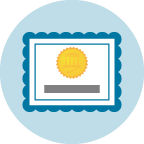
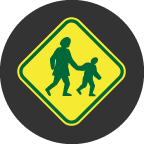
First Name
Brief description of activity or summary of tasks and/or materials used.
-

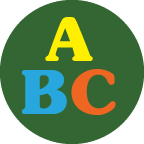
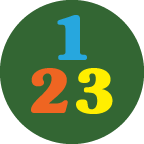
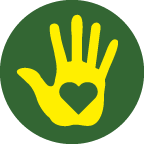

-
- Numbers
- 07
#10
Fingerplay "Ten In A Bed", counting and a small snack
-
#10
Fingerplay "Ten In A Bed", counting and a small snack
-



-
- Numbers
- 06
Introducing #4
Making the mark of "X" and using a calendar to learn numeral 4
-
Introducing #4
Making the mark of "X" and using a calendar to learn numeral 4
-



-
- Numbers
- 07
Reviewing #5
Reading "Sheep In A Shop", connecting dots and counting to 5
-
Reviewing #5
Reading "Sheep In A Shop", connecting dots and counting to 5
-



-
- Numbers
- 07
#8
Counting fun
-
#8
Counting fun
-


-
- Numbers
- 07
#9
Read the book "Fish Eyes: A Book You Can Count On" and how to use a ruler
-
#9
Read the book "Fish Eyes: A Book You Can Count On" and how to use a ruler
-



-
- Numbers
- 06
Introducing #5
Pattern making using shoes
-
Introducing #5
Pattern making using shoes
-


-
- Numbers
- 06
#9
Counting and sticker fun
-
#9
Counting and sticker fun
-



-
- Numbers
- 06
Introducing #7
Recognizing numbers 1-7
-
Introducing #7
Recognizing numbers 1-7
-




-
- Numbers
- 06
#8
Listen to song "10 Crunchy Carrots"; Practice recognizing and writing # 8.
-
#8
Listen to song "10 Crunchy Carrots"; Practice recognizing and writing # 8.
-




-
- Numbers
- 07
Reinforcing #3
Using coins for counting skills and pattern making
-
Reinforcing #3
Using coins for counting skills and pattern making
-



-
- Numbers
- 07
Reinforcing #7
A counting and memory activity
-
Reinforcing #7
A counting and memory activity
-




-
- Numbers
- 06
#10
Playing frisbee while learning numbers
-
#10
Playing frisbee while learning numbers
-




-
- Numbers
- 06
Introducing #2
Using blue gelatin as writing surface
-
Introducing #2
Using blue gelatin as writing surface
-



-
- Numbers
- 06
Reviewing #1-4
Verbal memory game with numbers
-

Reviewing #1-4
Verbal memory game with numbers
-



-
- Numbers
- 07
Review
Wordless books "Beach Ball" or "Wave" and stargazing
-
Review
Wordless books "Beach Ball" or "Wave" and stargazing
-



Activity Skills Focus
1 Social / Emotional Skills
Skills that develop children’s ability to understand the emotions of others and help children recognize and use appropriate social behaviors (for example, making friends). In the Department of Education report “Guiding Principles A Resource Guide for Improving School Climate of January 2014 it states “strategies such as social-emotional learning programs that address non-cognitive skills, including problem-solving, responsibility and resiliency, can also help students develop the skills needed to fully engage and thrive in the learning environment.”
2 Language Skills
Skills that help children understand and communicate during early childhood. The alphabetic principle (knowing letter names and sound-letter matches) aids in language development and is enriched by verbal interactions with other children and adults (reading aloud and engaging in conversation).
View all Language Skills Activities
3 Math / Science Skills
Math and Science skills help children with problem-solving and reasoning. Exploring numbers, patterns, and measurements by using math manipulatives (beads, counters, pennies) are all ways children develop their math skills. Asking questions about their surroundings, learning a science vocabulary (predict, observe), and having hands-on experiences with their environment can help develop their science skills.
4 Motor Skills
Motor skills are actions that involve the movement of muscles in the body. They are divided into three groups:
1. gross motor skills, which are the larger movements of arms, legs, feet, or the entire body (crawling, running, and jumping)
2. fine motor skills, which are smaller actions, such as grasping an object between the thumb and a finger (pencils or scissors)
3. sensorimotor skills which use the five senses to guide physical motions as in eye-hand coordination.
View all Motor Skills Activities
5 Problem Solving Skills
Skills that help with the construction of thought processes, including memory, problem-solving, and decision-making.
